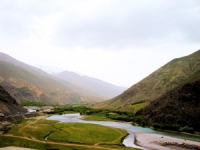Water sharing between Central Asian countries has been conflicting for quite a long time already.
International workshop: Transboundary waters, Challenges and the way forward

Fresh waters, surface and ground waters, are main water resources for human livings and environment. All of ancient civilizations have been established near above resources. Also transboundary basins have been main centers for creation of civilizations. Mesopotamia Civilization near Euphrates and Tigris Rivers, Shahri-Sokhta Civilization near Hirmand (Helmand) River and Indian Civilization near Indus River basins were some of Middle East ancient civilizations which had been related to Transboundary Rivers. Because of population growth, climate changes such as sever droughts and floods, changes in countries territories and other factors, accessing to fresh waters was limited and new challenges and disputes over transboundary basins occurred. During thousands of years, people of the world have experienced several ways for solving their problems on transboundary basins. Reviewing these experiences shows cooperation results much better than other methods. For more cooperation in transboundary waters, we need to know more about riparian countries socio-economy and environmental challenges and hydrology and climatology characteristics of the basin for estimation of total water balance within the basin and riparian countries. Another main required tool for more cooperation in transboundary waters is similar terminology and legal frameworks for discussion and decision and benefits sharing for riparian countries.




